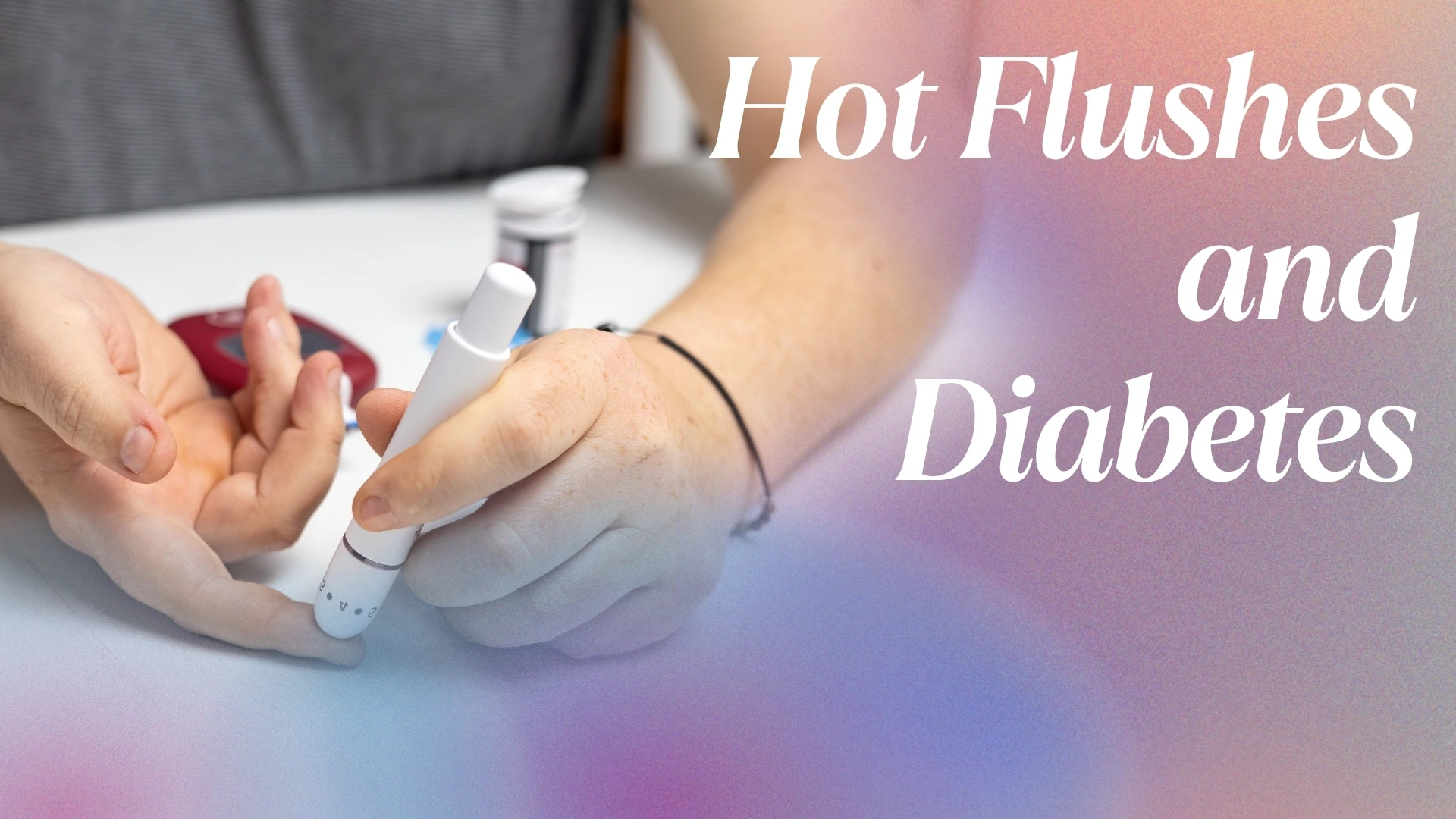Hot Flashes and Diabetes: Causes, Symptoms, and Management
July 20, 2024

Hot flushes are often thought of as a symptom of menopause, but they can also be related to diabetes. If you're dealing with hot flushes alongside diabetes, knowing how these two conditions are connected can aid you in managing both more effectively.
Hot Flashes and Diabetes: The Surprising Link
Hot flushes are sudden sensations of heat that can come with sweating, a racing heart, and sometimes dizziness. For people with diabetes, these hot flushes might be more severe or occur more often. This link often stems from fluctuations in blood sugar, which can disrupt the body's ability to regulate temperature.
Hot Flushes and Dizziness in Diabetes
If someone with diabetes experiences hot flushes along with dizziness, it could indicate a drop in blood sugar levels, known as hypoglycemia. This is particularly common for those managing type 1 or type 2 diabetes with insulin or oral medications. It's essential to monitor blood sugar levels during these episodes to prevent complications.
Hot Flashes in Different Types of Diabetes
Hot Flashes and Diabetes Type 1
Individuals with type 1 diabetes might encounter Hot Flushes due to variations in blood sugar levels, especially during episodes of hypoglycemia. Furthermore, hormonal imbalances linked to the condition can complicate the body's ability to regulate temperature.
Hot Flashes and Diabetes Type 2
For those living with type 2 diabetes, insulin resistance and elevated blood sugar levels can lead to Hot Flushes. This is particularly common when the condition is not well-managed, resulting in symptoms like excessive sweating and heightened body heat.
Hot Flashes and Gestational Diabetes
Pregnant women with gestational diabetes may experience Hot Flushes as a result of hormonal shifts, rising blood sugar levels, or insulin resistance. These episodes can be intensified by the physical and hormonal changes that occur during pregnancy.
Hot Flashes and Pre-Diabetes
Pre-diabetes is characterized by blood sugar levels that are above normal but not yet classified as diabetes. People in this stage might notice Hot Flushes as an early warning sign, indicating potential problems with glucose regulation and metabolism.
Severe Hot Flashes and Diabetes
Experiencing severe Hot Flushes while managing diabetes could suggest inadequate blood sugar control or an underlying condition such as autonomic neuropathy. This complication affects the nerves that help regulate sweating and body temperature.
Diabetes and Sweating
Excessive sweating, known as diaphoretic diabetes, is a symptom that can be associated with Hot Flushes in individuals with diabetes. This increased perspiration may happen during hypoglycemia, as the body tries to counteract low blood sugar levels.
Managing Hot Flashes and Diabetes
Here are some strategies for managing Hot Flushes related to diabetes:
- Monitor Blood Sugar Levels: Regularly check your glucose levels to spot patterns or triggers.
- Stay Hydrated: Dehydration can exacerbate both Hot Flushes and fluctuations in blood sugar.
- Adjust Medications if Needed: If your current medication seems to affect your ability to regulate temperature, consult your healthcare provider.
- Maintain a Healthy Diet: A well-balanced diet can help stabilize blood sugar levels, which may reduce the occurrence of Hot Flushes.
- Use Cooling Techniques: Employ fans, cooling towels, or wear light clothing to help alleviate Hot Flushes.
Recognizing Hot Flashes as a Diabetes Symptom
For some individuals, Hot Flushes and sweating might be the initial signs of diabetes. If you frequently experience unexplained Hot Flushes or episodes of sweating, it’s advisable to talk to your doctor and check your blood sugar levels.
Do Diabetics Have Hot Flashes?
Yes, individuals with diabetes can experience Hot Flushes. These are often linked to changes in blood sugar levels, hormonal imbalances, or nerve damage associated with diabetes. Hot Flushes can affect both men and women with Type 1, Type 2, or gestational diabetes.
Why Does Sugar Increase Hot Flashes?
Sugar can lead to increased Hot Flushes by causing fluctuations in blood sugar levels, which in turn affect the hypothalamus — the brain region responsible for regulating body temperature. This disruption can result in episodes of sweating and heat, particularly in individuals with diabetes or insulin resistance.
Final Thoughts
The connection between Hot Flushes and diabetes is intricate, but gaining insight into it can empower you to manage your health more effectively. Regardless of whether you have type 1, type 2, pre-diabetes, or gestational diabetes, keeping your blood sugar levels stable is essential for minimizing the occurrence and intensity of Hot Flushes.
If you’re uncertain about your symptoms, it's best to reach out to your healthcare provider for tailored advice.










































